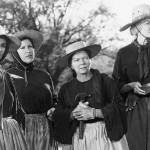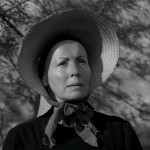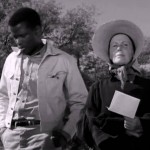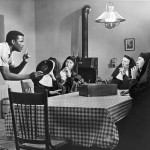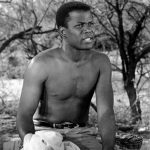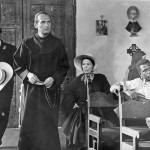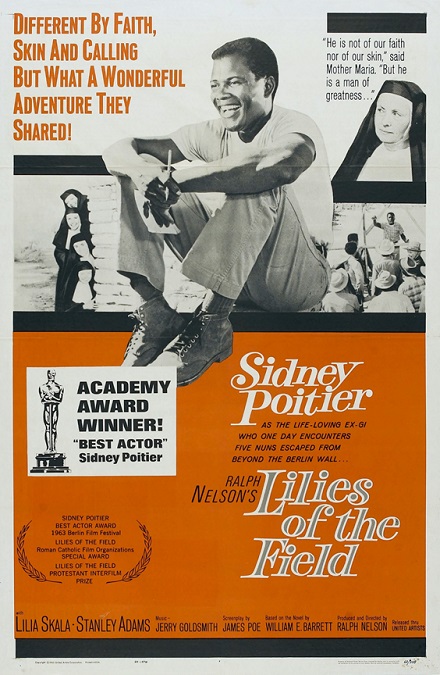
Lilies of the Field – 1963
Well, it’s time to scale things back for a bit. The nominees for 1963 were all larger epics, all except for Lilies of the Field. America, America, Cleopatra, How the West Was Won, and even the winner, Tom Jones, had stories that spanned years and grand themes that gave them a larger feel. But Lilies of the Field was a small film that took place over the course of only a few months. The cast was not very big and the small and intimate nature of the movie was more relaxed and simple. Even the length of the film was only an hour and 34 minutes.
Sidney Poitier played Homer Smith, a handyman who was just passing through. He stops at a nunnery in the middle of the Arizona desert. There, he meets 5 German nuns who are led by Mother Maria, played by Lilia Skala. Mother Maria believes that Homer was sent by God in answer to her prayers. She hires Homer to repair a roof. Then, she somehow gets him to stay overnight and drive the sisters into the local town on Sunday morning. Then, she somehow convinces him to build them a chapel.
Homer stays and works. He goes out of his way to help the sisters. He is generous and kind. He helps them to learn the English language. He brings them gifts of food and supplies. All he asks is that Mother Maria provide the materials he needs to build the chapel. Finally, with the help of the Mexican townsfolk, he builds a beautiful chapel, something of which he can be proud.
That’s the simplified version. But the interest lies in the complex interactions between the two strong personalities of Homer and Mother Maria. The way I saw it, I was on Homer’s side. He was honest, hard-working, and generous. But I am finding it difficult to put into words, just how against Mother Maria I really am. On the one hand, she was a terrible person. She was dishonest, manipulative, a bully of sorts, and ungrateful. On the other hand, she had a strength of character and a powerful faith which led her to accomplish seemingly impossible goals.
Why do I say that? Well, she clearly took advantage of Homer without even thanking him for his efforts. She seemed to believe that he had been sent by God to be her personal slave. Seriously. He agrees to do the work, expecting pay. But whenever he brings up the subject of payment, she talks over him, gives him another task to perform, and bullies him into silence. She treats him without respect and never even thanks him for his work, saying that God was the one who sent him, so God should receive the thanks.
She manipulates Homer into building the chapel. But he is a generous guy. He sees that the sisters are in need and he allows himself to be strong-armed into the monumental task. So they make an arrangement. He agrees to build the chapel and she agrees to provide the bricks and building materials. But when she fails to hold up her end of the bargain, she takes it out on him, asking him why he is not building, as if she doesn’t understand that he can’t build the chapel without bricks.
Homer brings the sisters gifts food and supplies out of the goodness of his heart, and still, Mother Maria only thanks God. Even in the end, when the chapel is finished, the bricks and extra labor having been provided by the local townsfolk, she cannot bring herself to thank Homer. God built the chapel, not Homer. Well, screw you lady! God may have used Homer as his instrument, but Homer did the work! A simple thank you was all he wanted!
I’ll be honest, the ending upset me and I don’t think it was supposed to. The final scene is one in which Homer tricks Mother Maria into saying the words, “thank you.” But the words were not directed at him and as soon as she caught herself saying them, she stifled them. There was no sincerity in her words. And this is supposed to be the touching moment of understanding between them? I didn’t get that sense at all.
I have also learned that the book ends beyond the film, showing how after Homer leaves, Mother Maria spreads rumors and creates a myth that Homer was really an angel sent by God, that he was not really human at all, and that he was a devout Christian who did his work joyfully. Wrong! You bullied a good man and completely took advantage of his generosity.

